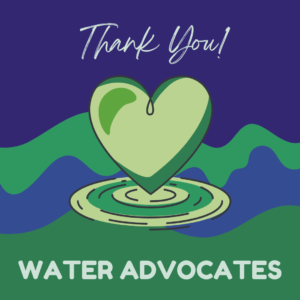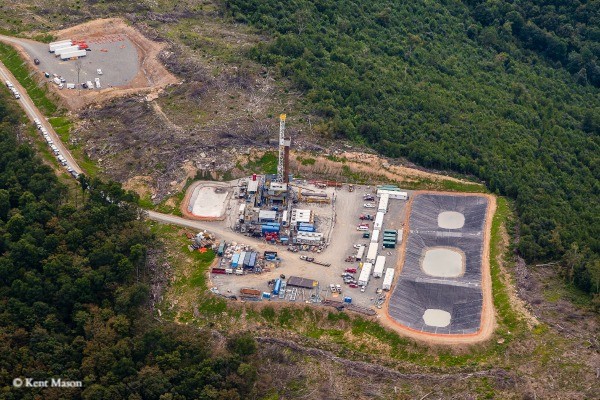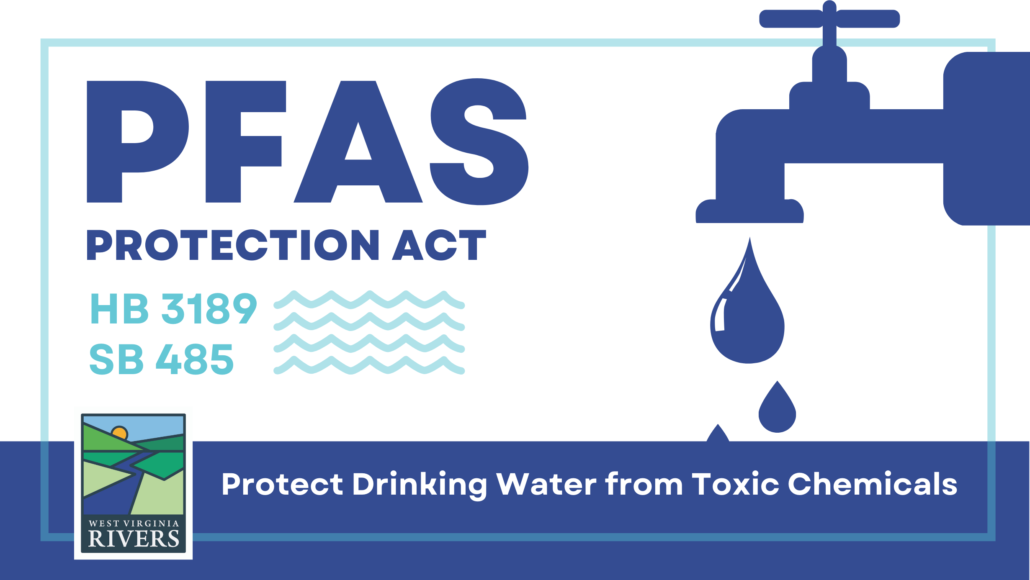Water Policy News: 2023 Session Wrap-Up
Positive Outcomes on Clean Water Priorities
Despite the doubters who said we could not move our priorities given our state’s political climate, you rose to the occasion and made it happen.
Thank you for being the force demanding clean water for everyone and public lands where nature is the highest value. Our supporters are the best!
The big highlights of what your actions made real for West Virginians:
- Passage of the PFAS Protection Act to reduce dangerous chemicals in our drinking water supplies.
- Increased funding, on industry’s dime, for more oil and gas inspectors.
- Prohibition against further off-road vehicle trail systems in state parks and forests.
Below are some details on developments that happened in the final hours of the session since last week’s update.
State Public Lands Protected From Further Expansion of Off-Road Vehicle Trail Systems
This issue, embedded in SB 468, took many twists and turns and came down to the wire. Your strong advocacy won! On the final day of the session, the Senate agreed to concur with the House amendment stating the DNR “is prohibited from establishing any additional ATV, ORV, or UTV trail systems within state parks and state forests”.
Senator Maynard withdrew his floor amendment that would have removed the expansion prohibition. To view the Senate floor discussion on this final action, go here and start at the 02:18:00 PM mark.
Take a moment and thank your representatives for listening to you – and for protecting public lands.
The bill does extend the ATV/ORV trail system that was a pilot project at Cabwaylingo State Forest. It also allows DNR to develop ATV/ORV connector trails, roads, and parking areas from private trail systems (like Hatfield McCoy) to access state park and forest recreational facilities and lodging. Chief Logan and Twin Falls are the two state parks that have been discussed by DNR as candidates for these connector trails. We’ll be watching closely how this plays out.
We know pressure to expand motorized use on our public lands is not at all laid to rest, but in the meantime congrats to all on getting the prohibition against further expansion in state parks and forests into state law! If you have interest in working on this issue with us over the next year, please contact our public lands coordinator, Mike Jones, at mjones@wvrivers.org.
DEP Gets Funding for More Inspectors
On the final day of the session we were also watching for agreement between the House and Senate on HB 3110, a bill to increase funding for oil and gas inspectors. Agreement did happen, so that legislation was officially completed and goes to the Governor who we expect will sign it into law.
We’ll be talking with DEP next week on how this funding will impact its short and long-term goals for their oil and gas oversight program. We anticipate it will result in doubling their fleet to 20 inspectors. This still doesn’t seem to be nearly enough to cover 75,000 wells and 20,000 tanks across the state, with the industry promising further significant growth.
Passage of this bill certainly is a step in the right direction, and we congratulate all of our advocates who have been part of our 3-year effort to bring attention to and action on this issue. Thank you!
The Journey to PFAS Protection
As we reported in our previous update, the PFAS Protection Act is completed legislative action. This is a remarkable feat for a bill like this to pass within its first year of introduction – amazing work, everyone!
Our journey to address this issue began more than 4 years ago. In 2019, we began approaching lawmakers about the urgent need to address PFAS — recognizing that a large-scale medical study of residents around Parkersburg, WV, confirmed PFAS cause life-threatening health problems. Our efforts led to legislation passed in 2020 to conduct a statewide study of the presence of PFAS in WV’s drinking water supplies.
The results of that study might have put on a shelf had we not intervened to make sure it was shared with decision-makers and the public. We dove deep into the details of the data and broke the news: 130 West Virginia public water systems serving around 700,000 West Virginians had levels of PFAS in their source water that exceed health advisories — some of these systems specifically served elementary schools.
Through summer and fall of 2022, we worked to draft legislation, vet it through key stakeholders, and develop a public outreach strategy. At the start of the 2023 legislative session, we were able to hit the ground running all the way through the finish line.
All of this preparation and your advocacy resulted in:
- West Virginians having data about the presence of PFAS in their water.
- Action plans to address public drinking water supplies contaminated by PFAS.
- Industries having to report and monitor their use and discharge of PFAS.
- Putting the responsibility on industries to reduce PFAS at its source.
Now it will be all eyes on implementation. In fact, we have a meeting with DEP this week to talk about approaches to community involvement in implementation and the funding it’s going to take to make that happen.
Please Support our Ongoing Policy Work
We’re sure you understand our success doesn’t come by sheer luck, but through continuous preparation — and significant cost. Financial support from individuals who care deeply about our water and public lands is an essential ingredient.
Some industry lobbyists are paid upwards of $400 per hour. And yet once again they underestimated our ability to get things done. That’s because we’ve got the science, we’ve got the truth, we’ve got the people who have our backs — that’s you; we appreciate it!
We hope you feel proud of what we’ve been able to accomplish together. And see that together we have what it takes to keep making incremental steps towards clean water and healthy streams for all. We need your help to stay the course, each step, each session, each year. Please consider making a gift today to keep our science-based advocacy work strong, thank you!
Click here to add your own text








